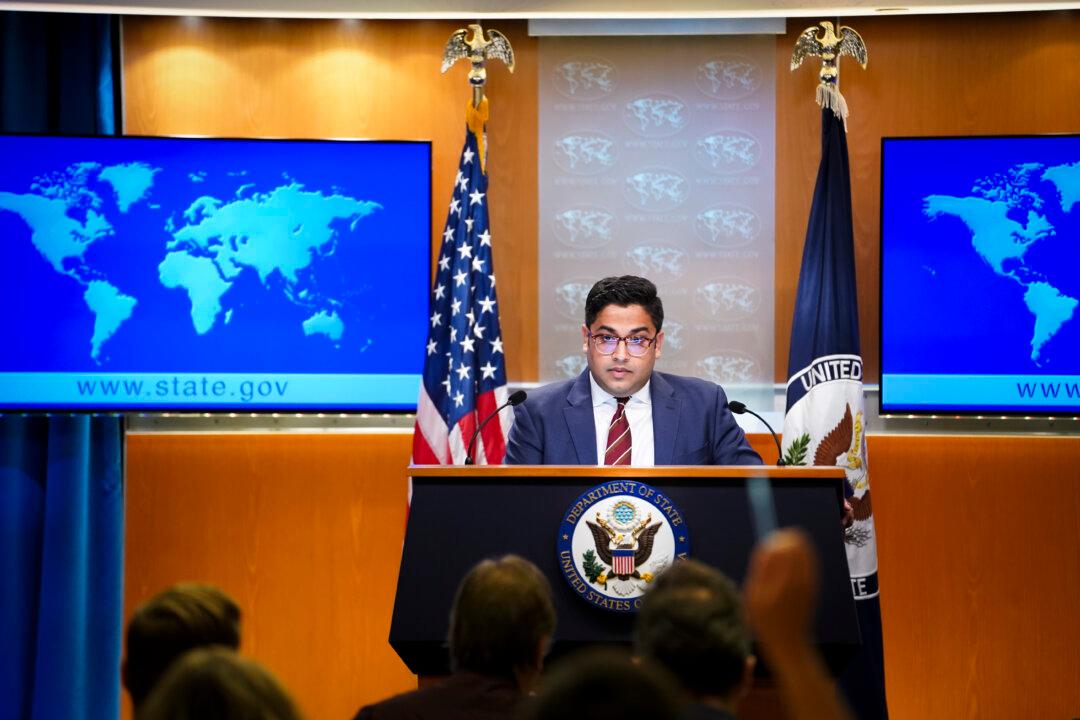The United States said on Tuesday that it opposes any “reoccupation” of Gaza by Israel after the Israeli leader suggested that his country would take control of security in Gaza after its conflict against Hamas recedes.
During a press briefing on Nov. 7, State Department deputy spokesperson Vedant Patel said the United States does not support “any forced relocation” of Palestinian people outside of war-torn Gaza.





